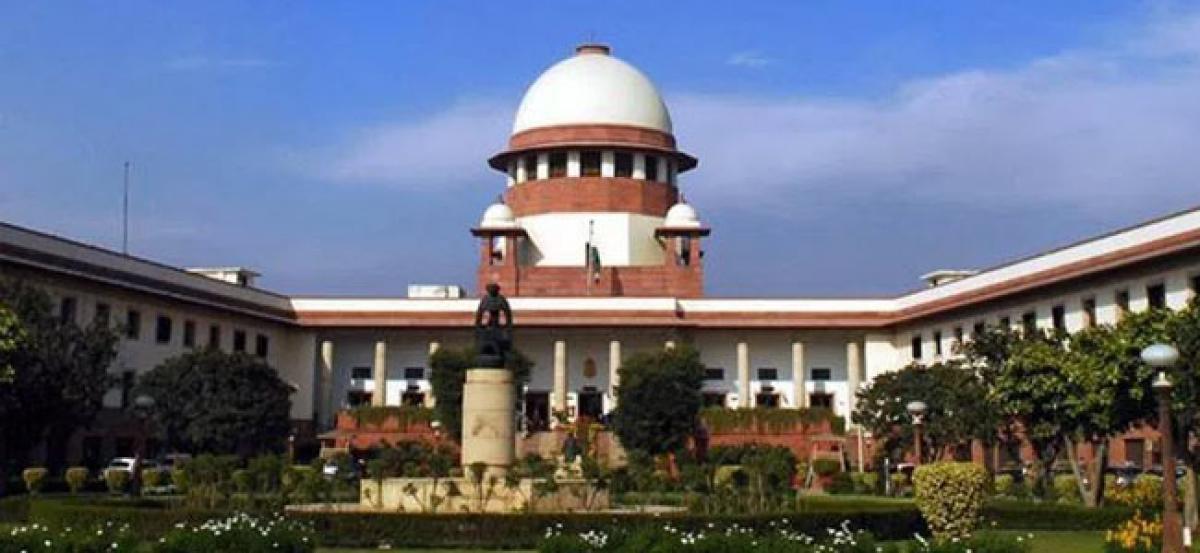Date of Ayodhya case hearing to be decided in January: Supreme Court

The Supreme Court on Monday adjourned Ayodhya case till January 2019 and will fix the date of hearing thenThe decision was taken by a bench of Chief Justice Ranjan Gogoi and justices Sanjay Kishan Kaul and KM Joseph who were scheduled to hear a batch of petitions challenging the Allahabad High Courts 2010 verdict by which the disputed land on the Ram JanmabhoomiBabri Masjid area in Ayodhya wa
New Delhi: The Supreme Court on Monday adjourned Ayodhya case till January 2019 and will fix the date of hearing then.
The decision was taken by a bench of Chief Justice Ranjan Gogoi and justices Sanjay Kishan Kaul and KM Joseph who were scheduled to hear a batch of petitions challenging the Allahabad High Court's 2010 verdict by which the disputed land on the Ram Janmabhoomi-Babri Masjid area in Ayodhya was divided into three parts.
On September 27, the Supreme Court had declined to refer to a five-judge constitution bench the issue of reconsideration of the observations in its 1994 judgment that a mosque was not integral to Islam which had arisen during the hearing of the Ayodhya land dispute.
In a majority verdict of 2:1, a three-judge bench headed by then Chief Justice Dipak Misra had said the civil suit has to be decided on the basis of evidence and the previous verdict has no relevance to this issue.
Justice Ashok Bhushan, who had penned the judgment for himself and the Chief Justice of India, had said it has to find out the context in which the five-judge bench had delivered the 1994 verdict.
However, Justice S Abdul Nazeer had disagreed with the two judges and had said whether a mosque is integral to Islam has to be decided considering religious belief which requires detailed consideration.
The issue whether a mosque is integral to Islam had cropped up when the three-judge bench was hearing the appeals filed against the Allahabad High Court's verdict.
The three-judge high court bench, in a 2:1 majority ruling, had ordered that the 2.77 acres of land be partitioned equally among three parties -- the Sunni Waqf Board, the Nirmohi Akhara and Ram Lalla.

